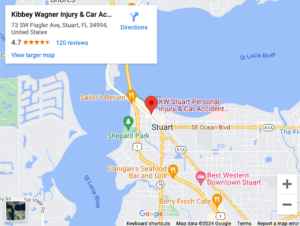
Navigating a personal injury claim can be a complex ordeal, particularly when considering the extensive efforts that insurance companies may take to challenge your eligibility and entitlement to compensation.
Insurers are often more interested in preserving their fiscal interests than paying fair compensation to claimants. They employ a variety of strategies designed to reduce the amount they need to pay out – or possibly deny responsibility altogether.
This makes it crucial for any injured party to understand these techniques when filing accident claims and develop appropriate responses against these tactics.
What Tactics Do Insurance Companies Use To Fight Claims?
Some of the most common tactics used by insurance companies include the following:
Disputing the Severity of Injuries
One tactic utilized by insurance companies is to dispute the severity or even existence of your injuries. They may argue that your condition isn’t as serious as you suggest and, thus, should not warrant substantial compensation.
Insurance companies can dispute the severity of your injuries by referring to medical reports or seeking opinions from independent physicians. They may also hire private investigators to observe you or go through your social media account to try to find evidence that contradicts your claims about the severity of your injuries.
Alleging Failure To Mitigate Injuries and Damages
Another strategy is to argue that you failed in your legal duty to mitigate your injuries and damages. Injured parties are expected to take reasonable steps towards treating their injuries and minimizing their impact.
If an insurance company can prove that you didn’t follow recommended medical treatments or deliberately engaged in activities that enhanced the severity of your injury or prolonged your recovery time, they will use this as a basis for refusing payment.
Allegations of Pre-Existing Conditions
In some scenarios, the insurance company may attempt to argue that your injuries were a result of pre-existing conditions and not directly caused by the accident itself.
For instance, if you had previous health issues or prior injuries similar or related to the ones you’re saying were sustained in the accident, insurers will use this as grounds for disputing your claim.
However, even if you did have a pre-existing condition, if the accident increased its severity or worsened it in any way, you can still obtain compensation for that in many cases.
Presenting Quick, Lowball Settlement Offers
Another strategy used by insurance companies after they’re injured by a negligent party is to present victims with quick but low settlement offers.
By implying an urgent need for your response or leveraging your need for immediate funds following an accident, they may try to pressure you into accepting an offer that doesn’t actually cover your losses. Or, you may not fully understand the extent of your injuries and the subsequent financial impact.
While a quick payout can sound appealing, the true value of a claim often far exceeds these initial offers.
Delaying the Claims Process
Insurance companies may intentionally drag out the claims process, frustrating claimants and potentially leading them to settle for less than they deserve.
Delays might include requiring additional information or documents, setting up seemingly unnecessary appointments with various insurance adjusters, or not promptly responding to inquiries about your case’s status.
This tactic takes advantage of people who may become overwhelmed by medical expenses and other associated costs following an accident who then accept low offers just because they need money quickly.
Shifting Blame to the Claimant
Sometimes, insurance companies may attempt to shift some or all of the blame for the accident onto you, even pointing out minor mistakes you may have made during the incident.
This is because the more at fault you are, the less money you are entitled to. Comparative fault rules lead to decreased payouts depending on the injured party’s percentage of fault.
For instance, if it is determined that you are 30% responsible for an incident and the total damages are equal to $100,000, you’d only be entitled to receive 70% of that – or $70,000.
If they can prove that your share of fault exceeds 50%, you’re entitled to nothing under Florida law. Naturally, insurance companies use this tactic whenever possible.
Knowing the most common tactics an insurance company will take to try to dispute your claim is essential so you can present the most effective legal strategy possible.
Steps You Can Take to Increase Your Chances of Adequate Compensation
There are several proactive steps you can take that are likely to increase your chances of a fair settlement:
Document Everything
It is essential to keep meticulous records related to the accident. These should include photographs of the accident and your injuries, as well as a written description of what happened and how everything unfolded so you don’t forget anything.
You can also keep a journal of how the injuries have affected you day-to-day, as this can help determine what damages you’re entitled to.
Seek Immediate Medical Attention
Another crucial step involves seeking immediate medical treatment. Not all injuries are immediately apparent following an accident, and a thorough medical examination can help identify any hidden issues.
Additionally, compliance with your physician’s advice further demonstrates diligence in mitigation, showing the insurance company and the court your proactive dedication to recovering from your injuries.
Report the Incident
Regardless of where your injury occurred, it’s crucial to report it to the appropriate authorities as soon as possible.
For example, in cases of car accidents, contact the police so they can come out and create an official accident report. If you’re injured at work, notify your supervisor or employer promptly about what happened.
Avoid Social Media
It is wise to avoid discussing your accident, injuries, or anything relating to your accident and claim on public platforms, especially social media. Despite privacy settings you may have set, photos and comments do not always stay private.
Insurers can use what they find against you – for example, a photo where you appear healthy and are participating in activities that you claim were limited by the accident.
It’s better to avoid posting on social media altogether until the claim is completely resolved. Remaining silent on these platforms about your accident and injury can prevent any unnecessary complications during the settlement process.
A Stuart Personal Injury Attorney Can Help With the Insurance Claim Process
Employing the services of an experienced personal injury lawyer who’s able to walk you through complex legal challenges is always beneficial. Lawyers understand how insurance companies operate, can negotiate fair settlements on your behalf, and will ensure appropriate actions are taken in a timely fashion.
Insurance companies typically have teams of experts aiding them in finding ways to pay out the least amount of money possible. Having an experienced personal injury attorney by your side puts you on a level playing field with these entities.
For help after any type of accident, contact us today to schedule a free consultation with a Stuart personal injury lawyer. Contact Kibbey Wagner Injury & Car Accident Lawyers Stuart at (772) 444-7000 to schedule a free consultation.

